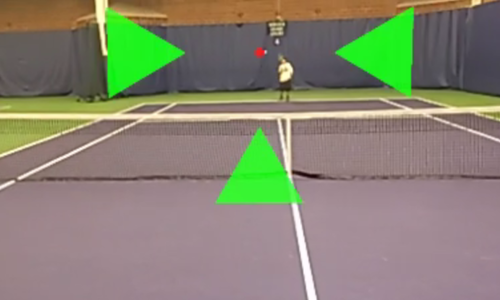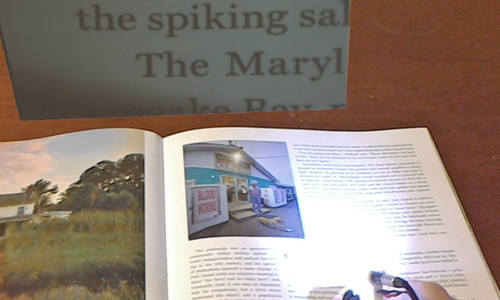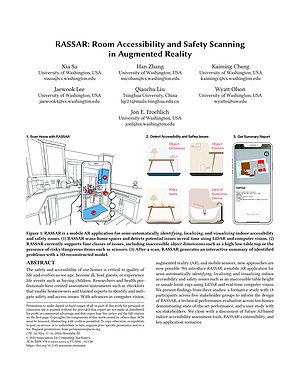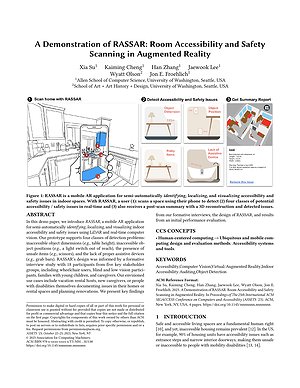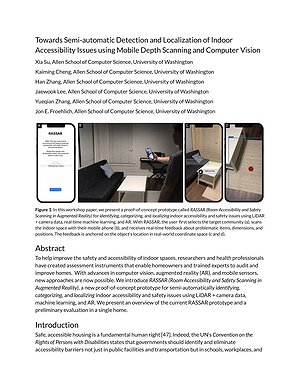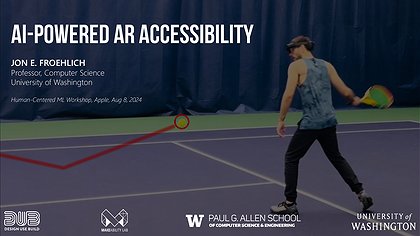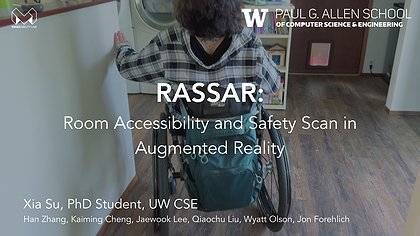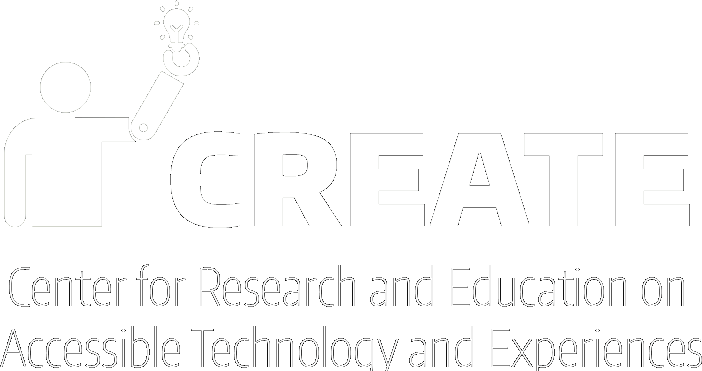To help improve the safety and accessibility of indoor spaces, researchers and health professionals have created assessment instruments that enable homeowners and trained experts to audit and improve homes. With advances in computer vision, augmented reality (AR), and mobile sensors, new approaches are now possible. We introduce RASSAR (Room Accessibility and Safety Scanning in Augmented Reality), a new proof-of-concept prototype for semi-automatically identifying, categorizing, and localizing indoor accessibility and safety issues using LiDAR + camera data, machine learning, and AR. We present an overview of the current RASSAR prototype and a preliminary evaluation in a single home.






